Carlisle Roman bathhouse excavation unearths sculptures and gems
- Published
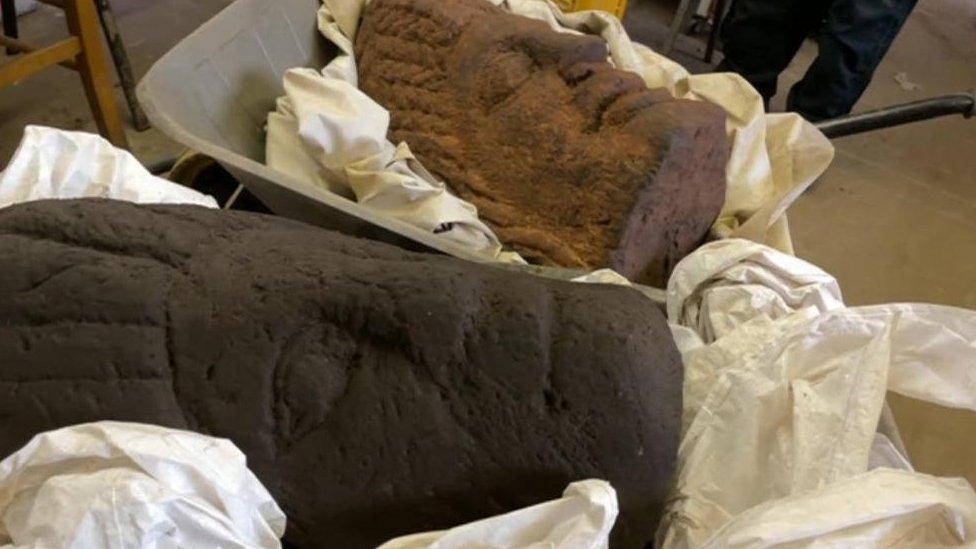
The well-preserved god heads unearthed are said to be "rare and priceless"
The excavation of a Roman bathhouse has unearthed more than 1,000 "significant finds" including sculptures and gems.
The artefacts included two "priceless" head sculptures of Roman gods discovered by volunteer archaeologists during the six-week dig at Carlisle Cricket Club.
The sandstone treasures are thought to date back as far as AD200.
The 2,000-year-old gems found would have dropped out of rings affected by the steam of the baths.
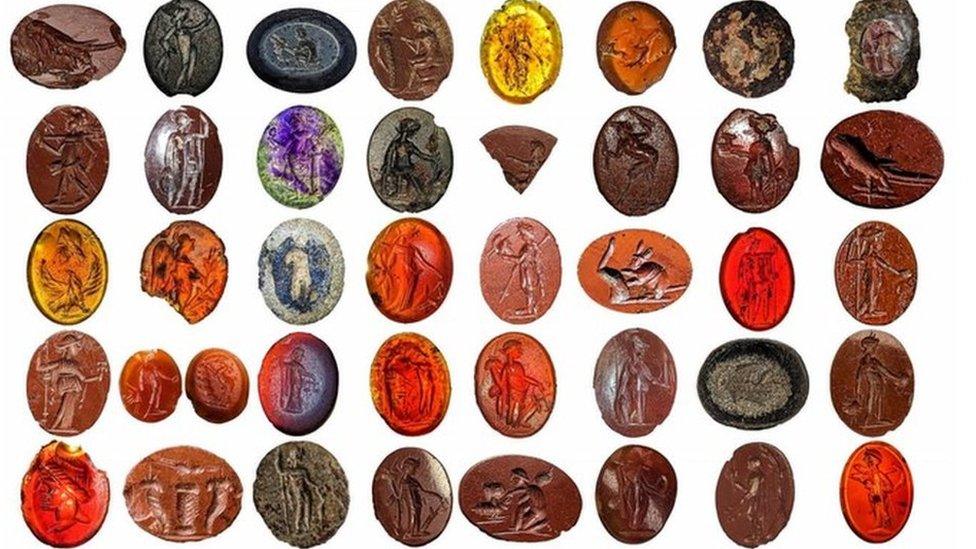
It is believed the gems dropped out of the signet rings of bathers
The engraved gems, known as intaglios, are only a few millimetres in diameter and ended up being flushed into the drains when the pools and saunas got cleaned.
'Wow finds'
Frank Giecco, technical director at environmental consultancy Wardell Armstrong, said: "The finds at the bathhouse have reinforced how high-status the building once was, amazing bits of sculpture and architectural features.
"We get wow finds every day. The level of interest has been utterly fantastic.
"It's been everything from local, to national, to international and as ever we're all just blown away by the kindness, enthusiasm, and generosity of the team on site, the project partners, local people, and the volunteers who are helping to make this possible."
Uncovering Roman Carlisle, run by Wardell Armstrong, Cumberland Council and Carlisle Cricket Club, has been supported by government and the National Lottery Heritage Fund.
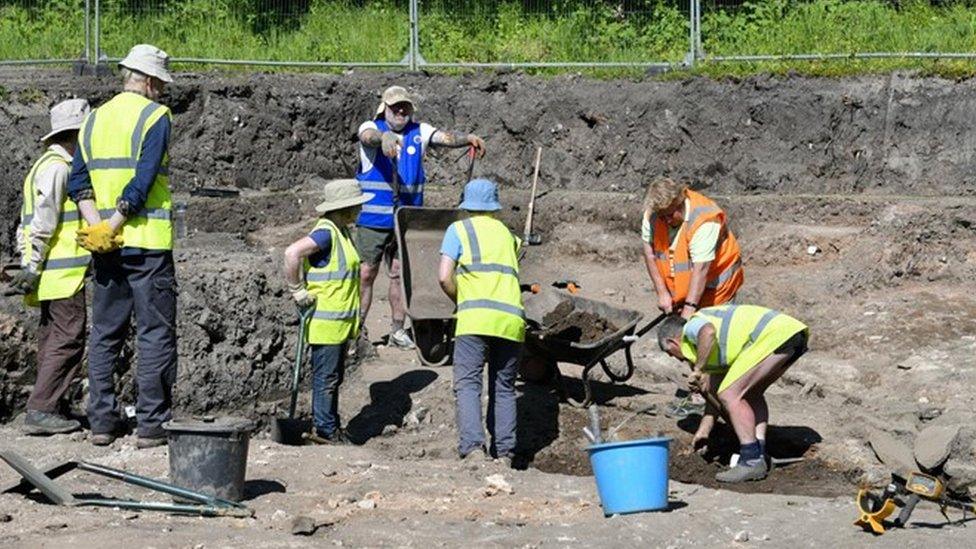
Volunteers have dedicated more than 1,200 hours during the six-week dig

Follow BBC North East & Cumbria on Twitter, external, Facebook, external and Instagram, external. Send your story ideas to northeastandcumbria@bbc.co.uk, external.
- Published31 January 2023
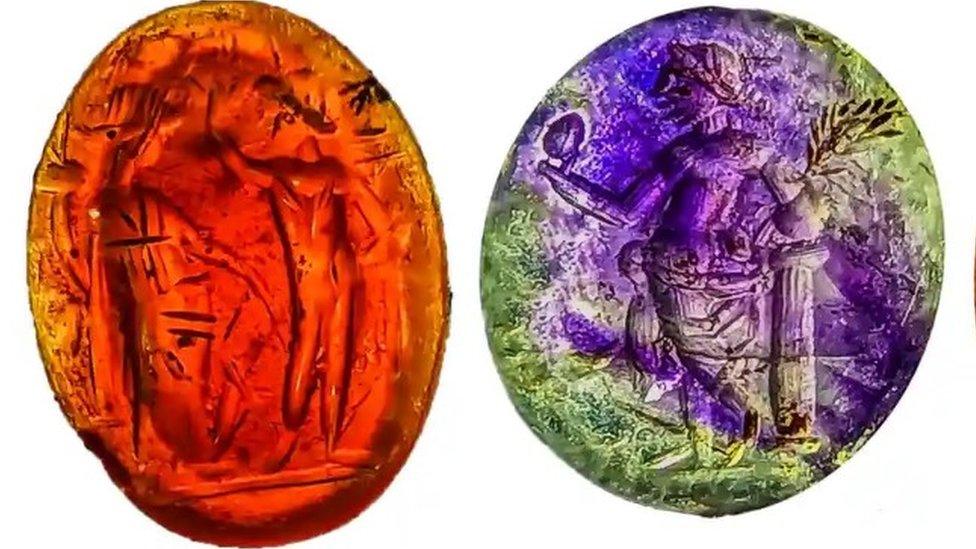
- Published24 May 2023
- Published6 August 2021
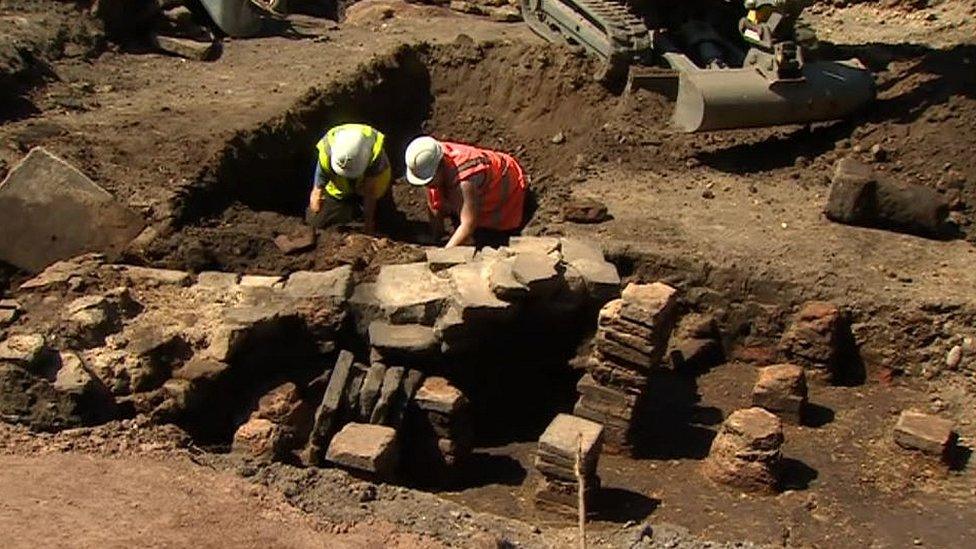
- Published28 May 2017
